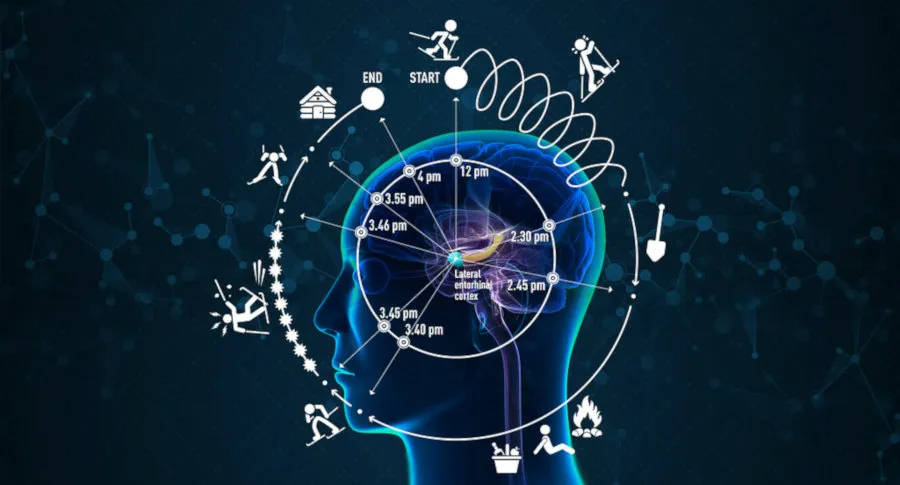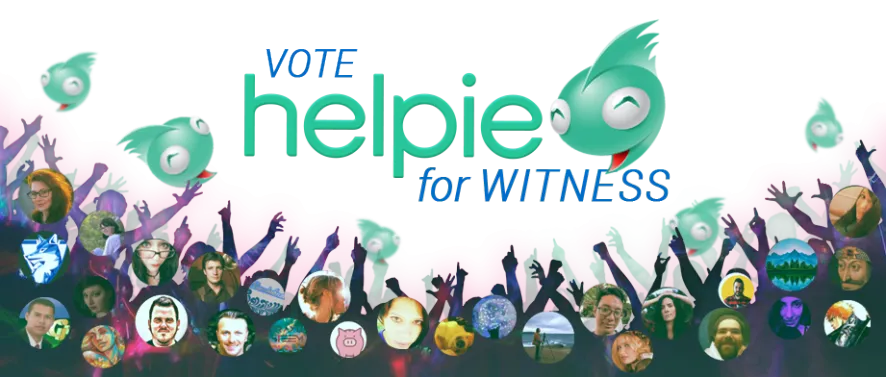We've all experienced the many strange and flexible ways our minds interpret time. How a couple of minutes of boredom can seem much longer, and an hour of fun can seem much shorter; time flies when we're having fun, doesn't it?

Image by Kavli Institute for Systems Neuroscience NTNU - source: Flickr
Time perception is a field of study within psychology, cognitive linguistics and neuroscience that refers to the subjective experience, or sense, of time, which is measured by someone's own perception of the duration of the indefinite and unfolding of events. The perceived time interval between two successive events is referred to as perceived duration. [...] Time perception is a construction of the sapient brain, but one that is manipulable and distortable under certain circumstances. These temporal illusions help to expose the underlying neural mechanisms of time perception.
source: Wikipedia
People who have near-death accidents literally see their whole life flash by in a fraction of a second. Similarly we can live a lifetime in one dream, or we can wake up and be surprised that hours have gone by, when we feel certain that we only closed our eyes for a couple of minutes. But this is just the beginning of the remarkable relation our minds have with time. In a previous post, Echoing Images I already explained that we're blind part of the time; we can never see our own eyes move when looking from left to right in a mirror. So there is a short delay in our vision as our eyes move, and our brains just fills in that gap. Because all sensory input needs to be interpreted by the brain, which takes time, we actually fill that gap by filling in time that has already gone by; because of the time needed to interpret, the brain constructs a picture of the world as it looked a fraction of a second ago...
But the brain then predicts how the world will look a fraction of a second later, so that we experience what is like "now" in this very moment. Or do we...? Well, it's actually a bit more complicated than that, and it seems that "now" in reality is forever elusive... As it happens, there's also a difference in speed at which different visual information is processed; we interpret color faster than motion or form, as the brain differentiates between them and processes them separately. Somehow our minds are able to compensate for all of that and present us with a coherent and continuous experience by ways of some very flexible patchwork. It would take too much time to explain all this in detail, so I invite you to watch the below TED talk from fellow Dutchman Hinze Hogendoorn, as he explains why professional tennis players are able to hit a ball that travels at 250 kilometers per hour, while we're unable to hit a housefly in mid-air that travels much, much slower;
Time and the brain: the illusion of now | Hinze Hogendoorn
Thanks so much for visiting my blog and reading my posts dear reader, I appreciate that a lot :-) If you like my content, please consider leaving a comment, upvote or resteem. I'll be back here tomorrow and sincerely hope you'll join me. Until then, keep steeming!

Recent articles you might be interested in:
| Latest article >>>>>>>>>>> | Money And Nihilism |
|---|---|
| Anarchism Is Not Chaos | Who Makes Money? |
| Amazing Skin Art | Kermit The Warmonger |
| Earthquake-Resistant Mystery | Song Of The Golden Dragon |

Thanks for stopping by and reading. If you really liked this content, if you disagree (or if you do agree), please leave a comment. Of course, upvotes, follows, resteems are all greatly appreciated, but nothing brings me and you more growth than sharing our ideas. It's what Steemit is made for!


Just for Full Disclosure, I'm invested in these crypto-currencies:
Bitcoin | Litecoin | EOS | OmiseGo | FunFair | KIN | Pillar | DENT | Polymath | XDCE | 0x | Decred | Ethereum | Carmel | XYO

@helpie is a WITNESS now! So please help @helpie help you by voting for us here!
